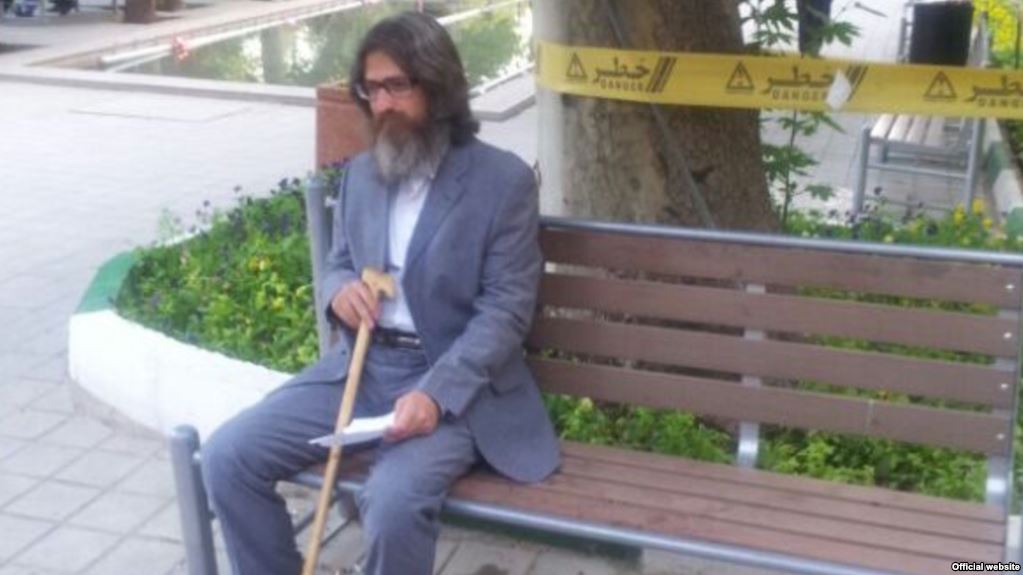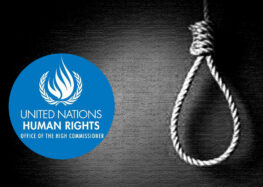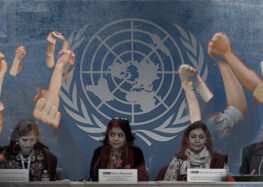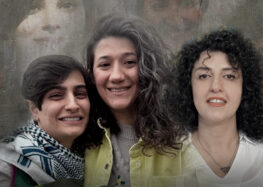Formerly Imprisoned Lawyer and Religious Minority Activist Expelled From University Without Explanation
Mostafa Daneshjou, a formerly imprisoned lawyer and member of a Sufi religious order known as the Gonabadi Dervishes, has been expelled from university without explanation, the Center for Human Rights in Iran (CHRI) has learned.
“I think the reason why they expelled me was my belief in the Gonabadi order,” Daneshjou told CHRI. “I have always defended the dervishes and I spent almost four years in prison for it.”
“I think that’s why the Intelligence Ministry is taking away my rights,” he added. “Usually these expulsion orders are issued by the Intelligence Ministry’s document verification office and they decide who can and can’t study at the university.”
Daneshjou was finishing his second term in criminology at the Islamic Azad University of Tehran as a graduate student when he received the news in a phone call from the university’s administrative office on May 20, 2017.
“They told me that according to an order from the university’s central security office, I have been banned from continuing my education, but they did not say why they reached that decision,” Daneshjou told CHRI.
“The next day I filed a complaint and demanded a written explanation,” he added. “I will wait and see. If I don’t hear back from them, I will take my case to the appropriate judicial authorities.”
Daneshjou started working as a lawyer in 2003, but was banned from practicing law in 2007 because of his peaceful advocacy in defense of the rights of Gonabadi Dervishes, which follow a different interpretation of Islam than Iran’s ruling Shia establishment.
Iran’s security establishment views other Muslim sects, religions and any other alternative belief system, especially those seeking converts, as a threat to the prevailing Shia order.
In September 2012, Daneshjou and six other Gonabadi lawyers—Hamidreza Moradi, Amir Eslami, Reza Entesari, Afshin Karampour, Farshid Yadollahi and Omid Behrouzi—were sentenced to prison terms ranging from four to seven years each for the charges of “spreading falsehoods,” “propaganda against the state” and “assembly and collusion against national security” for their alleged administration of the Majzooban-e Noor website, which provided news about the Dervishes.
The prisoners were all granted early conditional release in 2015.
Following Daneshjou’s expulsion, more than 3,000 students signed a petition condemning what they see as a pattern of discriminatory actions against followers of the Sufi order in various universities in Iran.
“One group that has been witnessing the violation of its rights by the security forces and the judiciary in recent months is the Gonabadi Dervishes, several followers of which have been prevented from studying at the country’s universities,” said the petition.
“We will endure all the consequences of our unrelenting struggle against these exclusions in the hope that one day we could live together as human beings,” it added.
Faezeh Abdipour, a political science major and student activist at Allameh Tabataba’i University in Tehran, told CHRI on May 31, 2017 that the students hold President Hassan Rouhani responsible for the dismissals.
“The president and the government have a duty under the Constitution to protect students from being treated as security threats, defend free speech and guarantee equal rights for every citizen,” said Abdipour.
“We will not allow the president to ignore his duties,” she added. “We will seriously pursue our demand with our campaigns and submit legal and administrative letters.”
*This article was updated on June 2, 2017 to add the information about the petition and Faezeh Abdipour’s comments.






